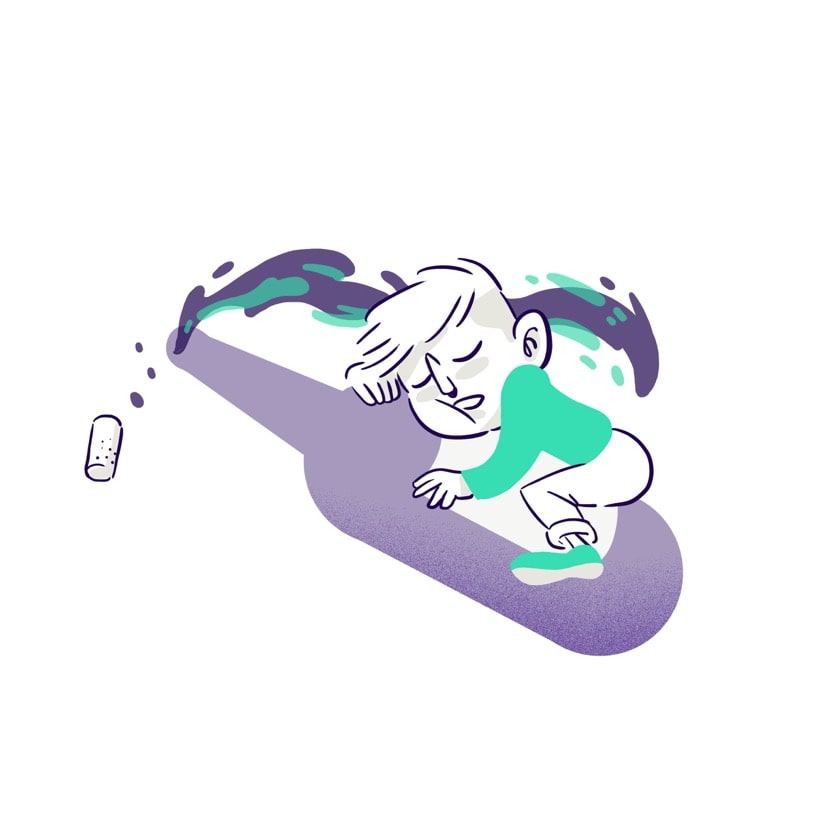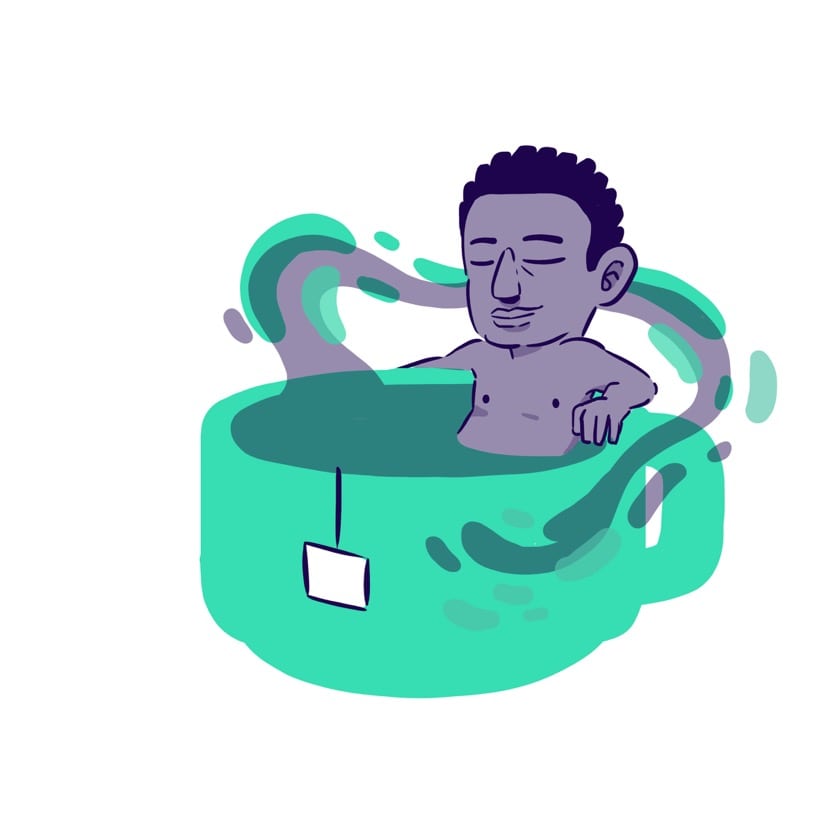Drink or sleep… You have to choose!
It is often said about a person who has "drunk well" that they will "sleep well." Is this saying really true? One might wonder!
We all have in mind a somewhat party-loving friend or that old uncle, considered a connoisseur of booze, whose alcohol consumption during an evening or family meal led him to fall asleep a little too easily and enter a deep sleep. So, can we believe that alcohol is a remedy for insomnia? What is the real impact of alcohol consumption on sleep quality?

One last little drink for the road… to sleep!
Well… Let's not beat around the bush: alcohol consumption directly affects the time it takes to fall asleep. This is a fact established by many studies that your uncle or friend surely won't contradict! In 2013, Irshaad O. Ebrahim and Chris Idzikowski, both professors at the renowned London Sleep Centre1, published a study in the specialized journal Alcoholism: Clinical and Experimental Research. They cross-referenced and analyzed data from no fewer than 27 studies. It emerges from this analysis2 that alcohol consumption speeds up falling asleep, making it easier and longer to enter the slow-wave sleep phase. This phase corresponds to 3 stages: falling asleep, light slow-wave sleep, and deep slow-wave sleep. In this case, it's a point gained by the aperitif for insomniacs, you might say. Actually, no. The reality is that with alcohol, the night is not necessarily great!
Indeed, what you gain in ease of falling asleep, you lose in sleep quality. One could compare this to speeding to save time and ultimately getting fined or having your driver's license revoked by the police. The benefits of alcohol on the slow-wave sleep phase turn into drawbacks during the so-called REM sleep phase. This impact of alcohol on REM sleep proves quite harmful. The latter (also called "REM" for "Rapid Eye Movement," like the famous rock band!) which is supposed to be the most restorative for the mind, becomes fragmented and damaged: you wake up more often due to a pressing need (your body eliminates toxins), sometimes with sweating or an accelerated heart rate. To the great delight of your partner (respecting gender parity!), alcohol can cause snoring as well as sleep apnea, which can sometimes be dangerous for health. This loss of sleep quality is often compensated by staying longer in bed: a good lie-in to recover. The result? Quite the opposite! Certainly, you don't necessarily wake up with a "hangover" (which obviously depends on the amount of alcohol consumed), but you at least feel a rather unpleasant fatigue upon waking! The biological (or circadian) rhythm is disturbed as demonstrated by the study Alcohol, sleep and biological rhythms3 from the scientific journal Neurophysiologie Clinique/Clinical Neurophysiology of January 1993.
To measure the impact of alcohol on your sleep, please blow!
And what if the impact of alcohol on sleep was measured by the amount consumed? This is indeed what the 2013 study4 previously cited highlights. In summary, the greater the amount of alcohol ingested, the more sleep is affected. It appears that at low doses only slow-wave sleep is disturbed (faster falling asleep). For a medium or high dose of alcohol, both slow-wave and REM sleep are influenced, resulting in circadian rhythm disruption. Well, now, to say that one should use a breathalyzer to be sure to be in a state to sleep is a step… that we will not take!

Alcohol does have an impact on sleep quality, but it also happens that some people are tempted to use alcohol consumption to fight their insomnia. What about alcohol as a sleeping aid? In view of the majority of studies, or simply by using common sense, it still seems quite risky, if not dangerous, to consider alcohol as such. The use of sleeping pills as well as alcohol consumption carry health risks and create dependence. Moreover, the poor quality of REM sleep caused by alcohol itself is a source of insomnia due to micro-awakenings, snoring, and other sleep apnea.
For a good night's sleep, nothing beats a good herbal tea! Don't like it? Not rock n' roll enough for you? Well, very well. In that case, to avoid nighttime discomfort, consume alcohol in moderation before going to bed and don't rhyme "aperitif" with "sleep." As a great sage once said, "the dose makes the poison"!
Sources :
[1] London Sleep Centre, site “The London Sleep Centre”, 2021 [2] Alcohol and sleep I: effects on normal sleep, Irshaad O Ebrahim, Colin M Shapiro et al, “Alcoholism, clinical and experimental research”, April 2013 [3] Alcohol, sleep and biological rhythms, HJ Aubin, JC Monfort et al, “Neurophysiologie Clinique”, January 1993 [4] Alcohol and sleep I: effects on normal sleep, Irshaad O Ebrahim, Colin M Shapiro et al, “Alcoholism, clinical and experimental research”, April 2013
